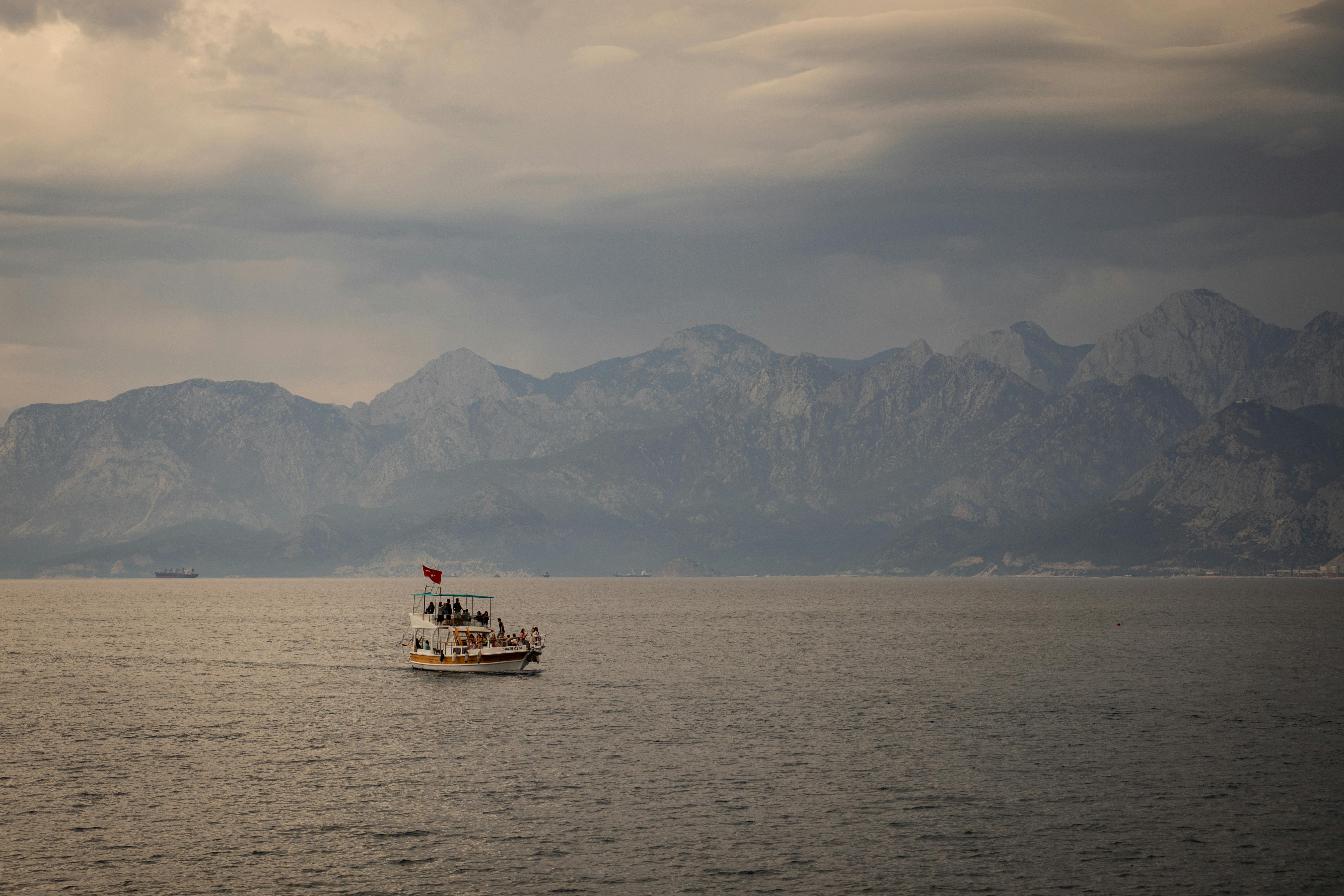Fiji Water is a brand of bottled water derived from an artesian aquifer in Fiji. It is available in 330 ml, 500 ml, 700 ml, 1 liter and 1.5-liter sizes. The water has a unique mineral profile due to its natural filtration process through layers of volcanic rock. While it is not officially classified as distilled water, it is considered a high-quality drinking water option for those who prefer not to drink tap water.No, Fiji Water is not distilled water. Fiji Water is a brand of bottled water derived from an underground source on the Fijian island of Viti Levu. It is then filtered through ancient volcanic rock before bottling.
What is Fiji Water?
Fiji Water is a brand of bottled water derived from an artesian aquifer in the Yaqara valley of Viti Levu, one of the two main islands of Fiji. It is available in several sizes, such as 330 ml, 500 ml, 700 ml and 1.5 litre bottles. The water contains naturally occurring electrolytes and minerals, including silica which provides a smooth taste. It is also known for its eye-catching blue bottle design with the iconic ‘Fiji’ logo printed on it. In addition to being available in stores, Fiji Water can be purchased online and delivered directly to homes. As well as being available in bottles, Fiji Water can also be purchased in boxes or cases for convenience.
Fiji Water has become popular due to its unique taste and natural purity. The company has achieved sustainability certification by adhering to strict environmental standards. They have implemented measures such as using alternative energy sources for production and packaging processes and reducing their carbon footprint by using recycled materials wherever possible. Additionally, they are committed to giving back to the local communities by providing access to clean drinking water through their charitable foundation.
What is Distilled Water?
Distilled water is water that has had many of its impurities removed through vaporization and condensation. This process, known as distillation, involves boiling the water and then condensing the steam into a clean container, leaving many impurities behind. This makes it different from other forms of purified water, which use various methods such as filtration or reverse osmosis to remove contaminants.
Distilled water is generally considered safe for drinking, and is commonly used in hospitals and medical settings where purity is important. It can also be used for other purposes such as steam irons and car batteries, where its lack of minerals helps to prevent deposits that could damage the equipment.
However, distilled water does have some drawbacks when it comes to drinking it on a regular basis. Because so many minerals are removed during the distillation process, distilled water can taste quite bland compared to other forms of purified water. Also, since it lacks essential minerals like calcium and magnesium, it can leach these important nutrients from your body if consumed over an extended period of time. No, not all mineral water is distilled. Mineral water is typically sourced from natural springs and contains a variety of minerals and other substances. Depending on the source, the amount of minerals present in mineral water can vary significantly. In some cases, the mineral content may be so low that it is effectively indistinguishable from regular tap water. Distilled water, on the other hand, is completely free of any minerals or other substances due to the distillation process which removes impurities from the water. As such, distilled water is often used in medical applications due to its lack of contaminants and its ability to be easily absorbed by human cells. While distilled water may be free of any contaminants or minerals, it is important to note that it can also lack essential electrolytes which can be found in certain types of mineral waters. Therefore, when considering mineral waters for consumption or medical purposes, it is important to pay attention to the source and mineral content so that you get an appropriate balance of electrolytes and minerals for your needs. Fiji Water is a popular brand of bottled water known for its distinctive square-shaped bottle. It is sourced from an underground aquifer on the remote island of Viti Levu in Fiji. The water is then filtered through layers of volcanic rock before it is bottled. The result is a naturally mineralized and purified water that is packed with essential minerals such as calcium, magnesium, and potassium. In addition to providing great taste, the minerals in Fiji Water help to keep your body hydrated and functioning optimally. Unlike some other brands of bottled water, Fiji Water does not use any chemicals or additives. This makes it a great alternative to tap water, which may contain traces of chlorine and other contaminants. The natural mineralization process also ensures that the water remains fresh and free from bacteria or other impurities. The high levels of essential minerals in Fiji Water make it an excellent choice for those who are looking to stay hydrated but don’t want to sacrifice taste or nutrition. It’s also a great choice for athletes, as the minerals help to replenish lost electrolytes during physical activity. Whether you’re looking for Water is essential for human life, and it is important to understand the differences between purified and distilled water. Purified water is any water that has been treated to remove impurities, while distilled water is a type of purified water that has been heated to evaporate impurities and then collected in a separate container. The main difference between purified and distilled water is the method of purification. Purified water can be filtered, treated with ultraviolet (UV) light, deionized, or reverse osmosis. The most common methods of purifying water are filtration, UV treatment, and reverse osmosis. These processes remove contaminants such as chlorine, lead, nitrates, heavy metals, pesticides and other pollutants from the drinking water supply. Distilled water undergoes an extra step in the purification process: it is boiled or heated until it turns into steam. This steam then condenses back into liquid form in a separate container. The result is pure H2O without any impurities because they were removed during the evaporation process. Distilled water is free from any minerals or traces of pollutants that may be present Fiji Water is one of the most popular bottled waters in the world, and it is recognized for its distinctive taste and purity. The source of Fiji Water, which comes from a protected aquifer deep beneath the tropical island nation of Fiji, is one of the key factors that makes it so desirable. But does this source make a difference in the quality of the water? The answer is a resounding yes. The source of Fiji Water is crucial to its unique flavor profile and health benefits. The aquifer in which it comes from is located in an untouched tropical rainforest. This area has been isolated from contaminants for thousands of years, which helps to keep Fiji Water incredibly pure and free from pollutants. Additionally, because Fiji Water is sourced directly from this aquifer, it has a natural alkalinity that helps to balance out its pH levels. This makes it easier for your body to absorb essential minerals like calcium and magnesium, which can help promote better health overall. Fiji Water also boasts an impressive level of TDS (total dissolved solids) that contributes to its smooth taste. TDS measures the amount of Fiji Water is produced by harvesting water from an artesian aquifer located deep within the tropical rainforest of the Fiji Islands. The water is then purified through a rigorous 11-step process that includes filtration, reverse osmosis, ultraviolet, and ozonation treatments. This process ensures that the water contains no impurities or contaminants and has a distinctively smooth taste. After the 11-step purification process is complete, the purified water is then bottled in recyclable containers. Every bottle of Fiji Water contains naturally occurring electrolytes that help to restore balance to your body after physical activity or heat exposure. The entire production process is carefully monitored to ensure that only the highest quality product reaches consumers. The artesian aquifer where the water originates is also carefully managed to ensure sustainability of this valuable natural resource for years to come. Finally, every bottle of Fiji Water has a unique “FOB” number printed on it which helps trace its origin back to its source in Fiji. This allows consumers to be sure that they are always getting genuine Fiji Water every time they purchase a bottle. < Fiji Water is not distilled water. It is still an incredibly healthy and safe option for drinking, but it does not contain the same level of purity as distilled water. Fiji Water is naturally filtered through layers of volcanic rock and has a unique mineral profile that makes it particularly appealing to consumers. Its unique taste and health benefits are what set it apart from other bottled waters. While it may not be the same as distilled water, it can still provide an excellent source of hydration for those looking for a great tasting, healthy alternative to tap water. Fiji Water can be enjoyed by those who prefer a natural mineral taste in their drinking water. It is an excellent choice for those looking for a healthier alternative to tap water, but without sacrificing on taste or quality. Its unique mineral profile makes it an attractive option for many people who enjoy the health benefits of natural minerals in their drinking water.
Fiji Water Purified or Mineralized?

Purified and Distilled Water
Does the Source of Fiji Water Affect Its Quality?
Fiji Water Production and Processing

Conclusion

